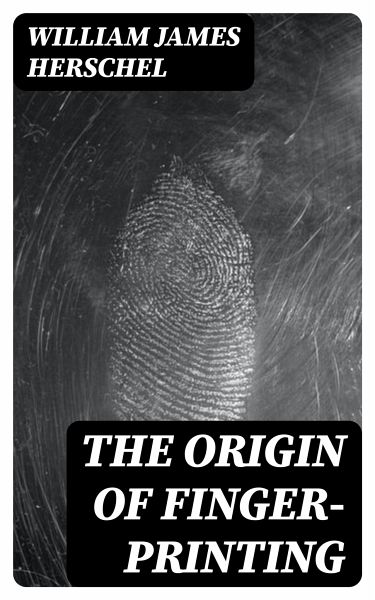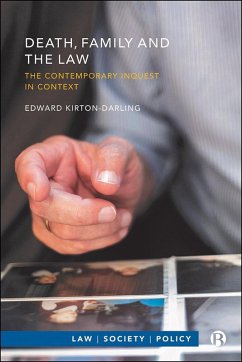
The Origin of Finger-Printing (eBook, ePUB)

PAYBACK Punkte
0 °P sammeln!
In "The Origin of Finger-Printing," William James Herschel meticulously chronicles the groundbreaking practice of using fingerprints as a method of personal identification. Written in a clear and engaging style, Herschel's work navigates the intersections of science and law, presenting not only the technicalities of fingerprinting techniques but also their profound implications for justice and social order in the late 19th century. The book serves as a pivotal commentary on forensic science, situating fingerprinting within the broader context of emerging technologies that sought to systematize...
In "The Origin of Finger-Printing," William James Herschel meticulously chronicles the groundbreaking practice of using fingerprints as a method of personal identification. Written in a clear and engaging style, Herschel's work navigates the intersections of science and law, presenting not only the technicalities of fingerprinting techniques but also their profound implications for justice and social order in the late 19th century. The book serves as a pivotal commentary on forensic science, situating fingerprinting within the broader context of emerging technologies that sought to systematize and improve personal identification. William James Herschel, a British civil servant and pioneer in the field of criminology, was instrumental in developing fingerprinting as a reliable identification tool. His personal experiences in India, where he first utilized this method for practical purposes, shaped his conviction in the efficacy of biometric identification. Herschel's scientific curiosity and professional background laid the groundwork for a transformative approach to law enforcement, making this work both a reflection of his innovative thinking and a significant cultural milestone. For scholars, practitioners, and anyone intrigued by forensic developments, "The Origin of Finger-Printing" is an essential read. It not only enlightens on the historical evolution of fingerprinting but also highlights its relevance in contemporary identification systems, making it a timeless resource for understanding both the roots and the future of forensic science.
Dieser Download kann aus rechtlichen Gründen nur mit Rechnungsadresse in A, B, BG, CY, CZ, D, DK, EW, E, FIN, F, GR, H, IRL, I, LT, L, LR, M, NL, PL, P, R, S, SLO, SK ausgeliefert werden.













